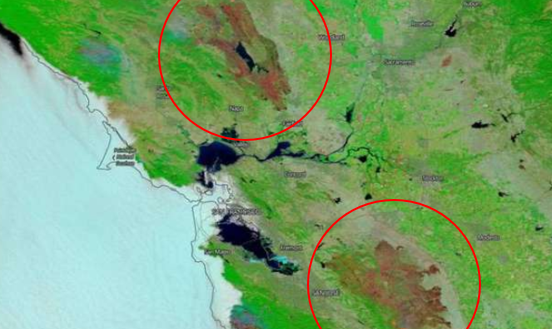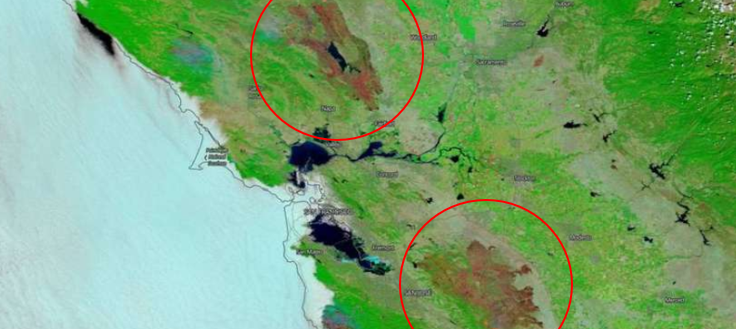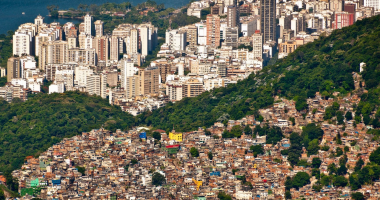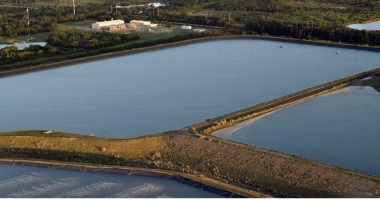Climate, Health and Equity Brief
Fear and Loathing on Planet Earth
September 8, 2020

The Climate, Health & Equity Brief is GMMB’s take on the week’s news on the current impacts of climate change. If you haven’t subscribed yet, you can do so by clicking here.
Hot Topic: Playing with fire. As California and parts of the South reel from extreme weather events this summer, a number of announcements by the Trump administration are set to increase harmful emissions and exacerbate the effects of climate change. In just the latest rollback of environmental protections, Mr. Trump’s EPA has chosen to ease requirements for treating coal plant wastewater prior to disposal, allowing harmful toxins into U.S. waterways and drinking water sources. The Bureau of Land Management also introduced a new rule significantly cutting the cost of leases to mine on public lands. And the Trump administration is now aiming to eliminate key environmental review processes and public notice requirements to open U.S. national forests to oil and gas drilling.
In Louisiana and Texas, excessive heat and humidity dealt another blow to hundreds of thousands of residents still without power after Hurricane Laura. In the predominantly Black and low-income community of Mossville, Louisiana, an industrial facility fire sparked by last week’s hurricane released dangerous levels of chlorine into the air, which can cause serious respiratory complications. And in Texas, a newly publicized report revealed that before Hurricane Laura even made landfall last week, oil and gas refineries released a whopping four million pounds of extra air pollution to clear their pipes ahead of the storm.
In California, the SCU and LNU Complex fires, which make up the second and third largest wildfires in the state’s history, have caused burn scars to Earth so massive that NASA was able to capture them from space. To make matters worse, health officials are warning that uncharacteristically dry conditions expected in California through the fall could leave smoke lingering in the air for months to come. The state is now bracing for yet another heatwave, with some forecasts predicting record-breaking temperatures that could worsen already dire fire conditions.
As Bill McKibben noted in The New Yorker this week, there are 25 parts per million more CO2 in the air now than there was in 2010. That’s more human-caused change in ten years than in the previous 7,000 combined. If environmental protections continue to be compromised in favor of the fossil fuel industry, the conditions plaguing California, Louisiana and Texas today are almost certain to become a dangerous new norm.
—Matt & Traci, GMMB
Health
At least 300,000 residents without power across Louisiana and Texas following Hurricane Laura faced another round of extreme weather with dangerous levels of heat and humidity this week. (The Washington Post)
California is bracing for yet another round of extreme weather with a record-breaking heatwave forecasted for the weekend that could exacerbate already severe fire conditions in the state. (The Washington Post)
After burning nearly 800,000 acres in California, the SCU and LNU complex fires have caused burn scars on the Earth so massive that they can be seen from space, and health officials warn that poor air quality could linger for months due to drier than average conditions expected through the fall. (SF Gate, San Francisco Chronicle)
According to a newly publicized report, oil and gas facilities in Texas released more than four million pounds of extra air pollution last week in order to empty pipes of excess fuel ahead of Hurricane Laura’s landfall. (NPR)
Equity
Inmates in California, who are excluded from national disaster plans by the federal government, were not evacuated from Vacaville prisons even as neighboring residents fled the wildfires, leaving them to face disproportionate health risks from the smoke. (Our Daily Planet)
Politics & Economy
The Trump administration has finalized a rule that significantly reduces fees for companies to obtain mining leases on public lands at the expense of U.S. taxpayers. (The Hill)
A newly proposed rule from the Trump administration this week would make oil and gas drilling in U.S. national forests easier by eliminating key environmental reviews and public notice requirements. (Reuters)
As climate change intensifies extreme weather in the U.S., hundreds of thousands of residents in California are at risk of losing their home insurance as insurance companies move to abandon fire-prone areas to avoid huge losses. (The New York Times)
A new study revealed that a majority of utility companies around the world are continuing to grow their fossil fuel capacity even as they invest in renewables, with only 10 percent prioritizing green energy growth. (BBC News)
Action
Consumer goods giant Unilever has pledged $1.2 billion to eliminate fossil fuelsfrom its cleaning products by 2030, adding to the company’s recently announced target of zero emissions by 2039. (Bloomberg)
Kicker
Think you know how to make effective lifestyle choices for the climate? Take this mini-quiz to find out.
“Imagine it’s a pandemic. You’re confined to your home. Then, a hurricane destroys it. You have no power, water or shelter. Now imagine, amid all that, a heat wave—statistically the deadliest weather event possible. This is reality for SW Louisiana.”
– HEATED Founder Emily Atkin

)





